- Home
- Linwood Barclay
The Twenty-Three 3 (Promise Falls) Page 9
The Twenty-Three 3 (Promise Falls) Read online
Page 9
He’d never seen anything like it. Promise Falls, he bet, had never seen anything like it. Upstate New York had never seen anything like it.
Ever.
“Out of the way!” someone shouted, and Victor Rooney spun around to find himself in the path of two paramedics wheeling a gurney toward the sliding ER doors. There was a teenage girl strapped to it, hands clutched to her stomach. Trailing the gurney were a man and a woman, presumably the girl’s parents.
The woman said, “You’re going to be okay, Cassie! You’re going to be okay!”
Victor stepped out of their way, then followed them, as though slipping into their jet stream, and entered the ER.
He stood to one side, cast his eye about the room. There had to be seventy to a hundred people in here. And that was just the ones he could see. Those beds in the examining area, behind the sliding curtains, were likely all full, too.
It took only a few seconds for him to spot someone he knew.
Walden Fisher, the man who’d nearly become his father-in-law.
“Christ on a candlestick,” Victor said.
Walden was seated in one of the waiting room chairs, doubled over, elbows on knees.
“Walden,” Victor said under his breath.
The man looked up suddenly and when he saw who it was, his mouth opened in surprise.
“Victor,” he said, putting his hands on his knees and starting to make the effort to push himself up.
“No, stay there,” Victor said. He’d have taken a seat next to him, but they were all filled with people waiting to see a doctor.
“Whoa,” said Walden, settling back into his chair. “Even trying to get up, things start spinning. I’m pretty light-headed. How sick are you?”
“I’m fine,” Victor said.
Walden appeared puzzled. “What are you doing here? Did you bring someone in?”
The younger man shook his head. “No. But my landlady’s dead. Found her in the backyard. I just wanted to come up, see what was going on.” He paused, added, “It’s all over the news.”
“What are they saying?”
“Might be something in the water,” Victor told him.
“Jesus. You didn’t drink any?”
Victor shook his head. “Guess I was lucky. What about you?”
“I . . . I had coffee. I made a pot. Never used to do it. Beth always did it, but now I make it. I got real sick, and my heart started doing weird things.” He gazed about the room. “Some of these people, they’re real bad.”
“Maybe you didn’t drink enough,” Victor said.
Walden gave him a look. “Whaddya mean by that?”
“Nothing. I’m just saying, maybe you didn’t drink enough to get as sick as these other people. What did you think I meant?”
Walden waved a weak hand at him. “Nothing, nothing.”
“There anything I can do for you?”
Walden found enough strength to nod. “Get someone to see me. I’m just sitting here, like I’m invisible or something. I’m gonna be dead before they know I’m here.”
Victor said, “Okay. Hang on.”
Victor interrupted three nurses and two doctors who were in the middle of treating other patients before he found someone who’d give him some attention. “Are you a nurse or a doctor?” he asked a woman whose arm he’d grabbed hold of.
“I’m Dr. Moorehouse,” she said.
“No one’s looked at that man,” Victor said, pointing at Walden. Moorehouse took a breath, headed for Walden, knelt in front of him. “Sir? How are you doing?”
“Not so hot,” he said. She asked his name, and he told her. She asked him several other questions. How long he’d been here, what he’d had to eat and drink this morning, how he was feeling now compared with when he’d gotten to the hospital.
The doctor listened to his heart, shone a tiny beam of light into his eyes. “I can’t admit you,” she said. “You’re sick, but we’ve got way worse.” She tipped her head toward Victor. “This your son?”
“No,” Walden said.
“I’m a friend,” Victor said.
“He should be looked at, but we’re swamped here. I’d suggest you take him to Albany, get him checked out there.”
“Albany?” Walden said.
“Hospitals there are taking people,” Dr. Moorehouse said. “We’re not equipped to handle something this big.”
“I can do that,” Victor said. “Can you handle that, Walden? Can you make it to Albany?”
Walden patted his chest, as though diagnosing his ability to travel. “I guess.”
“Take care, Mr. Fisher,” the doctor said, and went off to look at someone else.
Victor helped Walden Fisher to a standing position. “I’m parked a few blocks away. Can you walk it?”
Walden let go of Victor’s hand to test his balance. “I think so.” But he took the younger man’s elbow as they left the ER.
Halfway to the van, Walden asked to stop. He leaned forward, rested his hands on his kneecaps.
“You gonna be sick?” Victor asked.
“Just a wave of something,” he said, then stood, tentatively. “I think it’s over.”
When they reached the van, Victor opened the passenger door for Walden and helped him into the seat. Victor ran around, got in, and said, “I’m telling ya, what a clusterfuck. You know?”
Walden said nothing.
“Kind of takes your mind off it, though,” Victor said.
Walden turned his head. “Kind of takes your mind off what?”
“All this shit that’s happening. Kind of takes your mind off the fact that it’s been three years.”
Walden stared at him.
“You know. Three years since Olivia—”
“Of course I know,” Walden said, his voice stronger than it had been up to now. “Nothing ever takes my mind off that. Ever.”
“Okay, well,” Victor said, and turned the key. The van sputtered to life. He put the vehicle into drive, checked his mirrors, and pulled out into the street. “You have to wonder, though.”
“Wonder what?”
“Whether any of them died today. The ones that did nothing.” Walden turned away, looked out his window, chewed on the middle fingernail of his right hand.
“Forget Albany,” he said. “Take me home. If I die, I die.”
TWELVE
Duckworth
“HOW long has Tate Whitehead worked for the town?” I asked Garvey Ottman as we wandered through the treed area between the water treatment plant and the highway.
“Long as I can remember,” Ottman said. “Twenty-five years, maybe.”
“Has he always had a drinking problem?”
Garvey was scouring the bushes to the left and right, pretending, I thought, not to hear. If Whitehead had failed to do his job properly because he was hammered, resulting in the deaths of God knew how many Promise Falls residents, Ottman had to know there was a good chance it was going to come back on him.
“I said, has Tate had this problem a long time?”
“I guess it’s all in how you define ‘problem,’ you know?” Ottman said.
“Let me help you with that,” I said. “Did Whitehead come to work drunk?”
“Like I told you, our shifts didn’t really overlap.”
I stopped trudging through the tall grass, turned, and raised a hand in front of the man. “Cut the bullshit,” I said.
Ottman blinked. “What do you mean?”
“You’re in charge of this plant. You telling me you don’t keep track of the people you don’t actually see? You have no mechanism in place to make sure they do their jobs?”
“Well, sure,” he said defensively. “Like, if Tate was having a problem overnight, he’d leave me a note, ask me to check it out, that kind of thing.”
“You saying Tate would have to e-mail you to say he was too drunk to chlorinate the water or whatever the hell you do with it, and maybe you’d like to look into that?”
“No, of
course not, he wouldn’t say that. But if there was a technical problem, he’d let me know.”
“How would you know if Tate was performing his duties while under the influence? He worked the plant alone overnight. How would you know?”
“The guy he relieved would see him, and then whoever relieved him in the morning, like Trish this morning.”
“If I asked Trish if he was ever drunk when she came in for her shift, what would she tell me?”
A hesitation. “She might say it’s happened once or twice.”
“And you know this because she passed that along to you?”
Another damning hesitation. “She might have mentioned something at some point.”
“And when she did, what did you do about it?”
“Look, Detective—Duckworth, is it?”
I nodded. I was grateful to have stopped for this discussion. It gave me a chance to catch my breath after stepping over all the brush and debris.
“Tate Whitehead drinks. A lot of people drink. I think the odd time, the dumb bastard came out and had a beer in his car when he was supposed to be doing his job. But I’ve never—and I swear to God I’m telling you the truth here—I’ve never known him to not do what he was supposed to do. You think Tate’s the only guy on the town’s payroll who drinks on the job? What about the cops? You want to tell me you never worked with a cop who had a drink during his shift, or got smashed when it was over, and maybe showed up the next day pretty hungover?”
I said nothing. He was right about that, of course.
“If the town fired everyone who drank too much, there wouldn’t be enough people left to get things done,” he said.
“Be sure to tell that to the lawyers,” I said.
“Lawyers?”
I scanned the woods. “I don’t think he’s out here. And yet, his car’s still here.”
“Maybe he got a taxi.”
“Hmm?”
“If he finished his shift drunk, maybe he had just enough smarts not to try and drive himself home.”
I supposed that was possible, although it had been my experience that good judgment did not typically follow heavy drinking. But Ottman had given me Tate’s home address, so it wasn’t going to be long before I found out for myself.
“I want to ask you about Finley,” I said.
“Randy? What about him?”
“You seem to be friends.”
Garvey Ottman shrugged. “I know him.”
“He also seemed to know about Tate Whitehead. That he’s got a problem.”
“Let me tell you something about Randall Finley,” Ottman said. “Lot of people, they think he’s a big asshole. And maybe he is. But when he was mayor, he never acted like he was too good for regular people. He used to come by here all the time. And not just here. You ask them at the fire department, or even the guys who pick up the trash. He’d go visit those people, shoot the shit with them. He came by here lots, into the plant, talking to people, asking what they did, how everything worked. Like he really cared, you know? So when people say Randall Finley is a jerk, I say you don’t know the guy.”
“He came by here a lot?” I asked.
“When he was mayor.” The man nodded. “And even after, the odd time, if he was driving by, he’d just pop in. I hear he’s running again.”
I nodded.
“Well, he’s got my vote. I mean, he’s not even the mayor right now, but he’s up here, trying to help out. Where’s Amanda Croydon? You see her here?”
“I hear she’s out of town,” I said, although I didn’t feel much like defending her. She needed to get her ass back, and fast. “I’m going to swing by Tate’s house, see if he’s there. In the meantime, if you see him, if he shows up, I want you to call me immediately.”
I gave Ottman one of my cards. He looked at it, tucked it into his shirt pocket.
“Okay,” he said.
As I worked my way back through the trees to the parking lot, my cell phone started to ring. It was the station.
“Duckworth.”
“Yeah, Barry, Chief here.”
Rhonda. She usually identified herself to me by her first name. Was the more formal tone related to her being pissed off with me, or was the gravity of the town’s situation prompting a more official approach?
“Hey,” I said.
“Where are you?”
“Water plant. The overnight guy who monitors the place is apparently a drunk and nowhere to be found.”
“Terrific.”
“I’m going to see if I can find him at home.”
“Something else has come up.”
Jesus. What the hell else could happen? Half the town had been poisoned, and I was still working the drive-in bombing from a few days ago. Had a truck carrying radioactive waste rolled over on the bypass?
“What is it, Chief?”
“We’ve got a homicide.”
“They might all end up being ruled homicides,” I said. “We could have hundreds of them.”
“I’m not talking about the poisonings. This is out at Thackeray. They’re not hooked up to the town water supply.”
“Thackeray? Hasn’t everyone gone home?”
“Summer student.”
“Christ. Send Carlson.”
“I tried. I can’t reach him.”
He was probably still in the hospital ER, unable to get calls on his cell.
I sighed. “I’ll try to get out there ASAP. What do we know so far?”
“Not much,” Rhonda Finderman said. “Just that it’s a young woman, and it’s bad.”
THIRTEEN
DAVID figured Gill was dead.
Every time he glanced in the mirror to see how his uncle was doing, there was no movement from the man. Not so much as an eye blink. The man was sprawled across the seat, and Marla was up front next to David, Matthew in her arms. She was turned sideways, her back to the door, maintaining a constant chatter with her father.
“Hang in, Dad. Just hang in. I love you. Matthew loves you. We need you. You need to be strong. You need to be there for us. We need you so much.”
David was almost as worried for Marla as he was for Gill. She’d been through so much in the last month. Implicated, and ultimately exonerated, in a murder. Found out her baby was alive, but lost her mother.
Perhaps most devastating of all was learning her mother had conspired to let her believe her baby had died. At first, Marla’d been unwilling to comprehend it. The betrayal was more than she could handle. But in the weeks since, reality had slowly set in. The credit for that, David felt, rested in large part with Gill, who had patiently and delicately led Marla toward the truth.
Marla needed him. David was wondering how she’d cope if she lost her father now. He feared a complete mental collapse. Which would be horrible enough for Marla, but what about Matthew? Who’d look after him if his mother became incapacitated? And for how long?
David was pretty sure he knew the answer to that question. He and his parents would do it, for as long as they had to.
When he got to the hospital, he nosed the Mazda right up to the ER doors, navigating around several ambulances like a fish working its way upstream. He told Marla to wait with her father while he ran in to find a doctor or a nurse or even a goddamn orderly who could take a look at his uncle.
He spotted a woman with the proverbial stethoscope hanging around her neck and a mask across her mouth and nose heading across the crowded waiting room.
“My uncle!” he said, positioning himself right in front of her. David knew there was no way he was going to get any help for Gill without being in someone’s face.
“What about him?” the woman said.
“He’s in the car, just outside. I don’t know if he’s still alive or not.”
The woman’s entire body seemed, for half a second, to wilt. She glanced toward the door, then back toward all the waiting patients, a gesture that suggested to David that she had no idea whom to look at first, or whether the order in which
she saw people was going to make any difference.
“Show me,” she said.
David led the way, asking, “What’s your name?”
“I’m Dr. Moorehouse. Your uncle?”
“Gill Pickens.”
She reached out and grabbed him by the elbow. “Gill? Agnes’s husband?”
David nodded. At the car, Marla had the back door open and was leaning over her father, talking to him, while balancing Matthew on her hip.
“Marla,” David said, pulling her out of the way.
The doctor squeezed in. “What’s he had this morning?” she asked. “To eat, to drink?”
“Just coffee, I think,” Marla said.
“Symptoms?”
“He got dizzy and he started throwing up and then he passed out,” she said. “Can you help him?”
The doctor nodded, more to herself than her audience, as though she’d heard this many times already today. She held up a hand, a “no more questions” gesture, as she put the stethoscope to Gill’s chest.
She listened for several seconds. David steeled himself for the worst.
“This man is alive,” the doctor said. She pulled herself out of the car, stood, and shouted over the roof at a couple of paramedics who appeared to be, at least for several seconds, idle.
“I got a live one here!”
They ran toward the car, one pulling a gurney behind them. They maneuvered Gill out of the car and onto it while David and Marla watched, barely breathing.
“Oh my God,” Marla said under her breath. “Oh my God, oh my God. You’re going to be okay! They’re going to fix you up, Dad!”
She started to trot along after them, following them into the building, but Dr. Moorehouse turned and said sharply, “Wait.” Gill was whisked away down a hallway that was already jammed with patients on gurneys.
David caught up to her. “Come on, Marla. Come on. Let’s go outside.”
As they exited the building someone yelled, “David!”
It was his mother, Arlene. She was running up the driveway. David raised his palms, trying to get her to slow down. The last thing he needed was for her to fall down and break her wrist. He ran ahead to meet her.
“I had your father drop me off down the street,” she said, huffing. “There’s so much traffic he didn’t think he could get any closer. Ethan’s with him.”

 Chase
Chase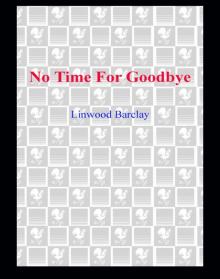 No Time for Goodbye
No Time for Goodbye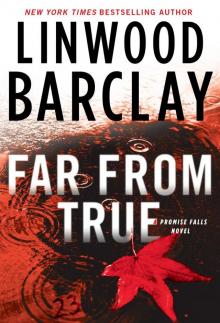 Far From True
Far From True Lone Wolf
Lone Wolf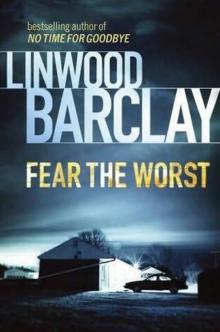 Fear the Worst
Fear the Worst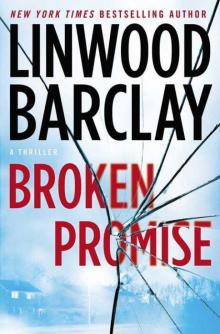 Broken Promise
Broken Promise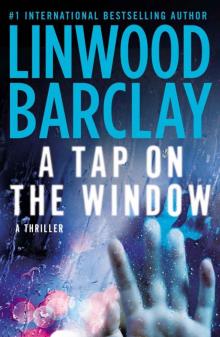 A Tap on the Window
A Tap on the Window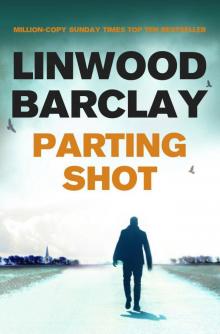 Parting Shot
Parting Shot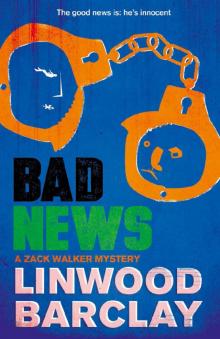 Bad News
Bad News Too Close to Home
Too Close to Home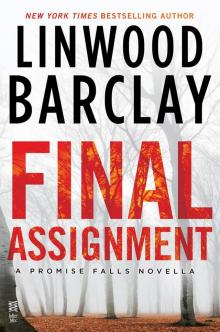 Final Assignment
Final Assignment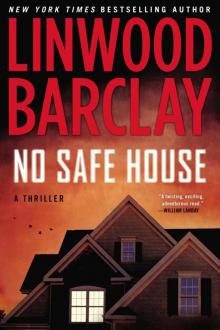 No Safe House
No Safe House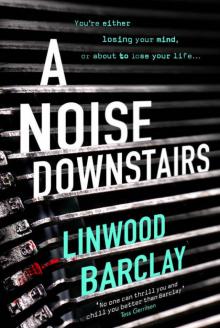 A Noise Downstairs
A Noise Downstairs Bad Guys
Bad Guys The Accident
The Accident Stone Rain
Stone Rain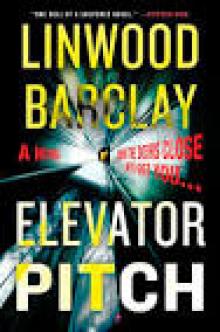 Elevator Pitch
Elevator Pitch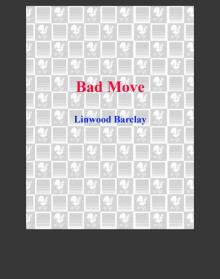 Bad Move
Bad Move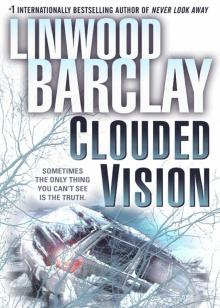 Clouded Vision
Clouded Vision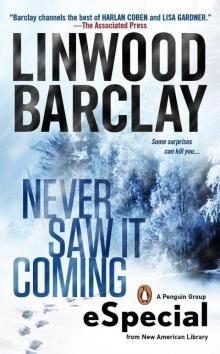 Never Saw It Coming
Never Saw It Coming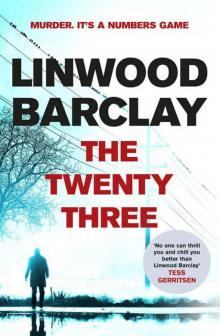 The Twenty-Three
The Twenty-Three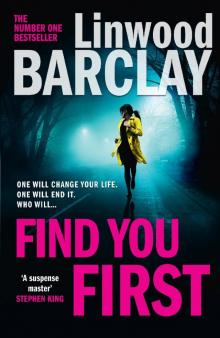 Find You First
Find You First Never Look Away
Never Look Away Elevator Pitch (UK)
Elevator Pitch (UK)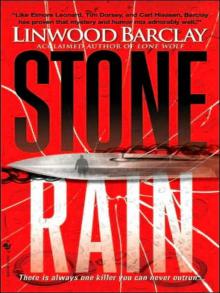 Stone Rain zw-4
Stone Rain zw-4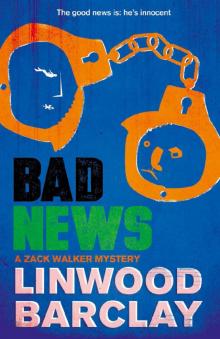 Bad News: A Zack Walker Mystery #4
Bad News: A Zack Walker Mystery #4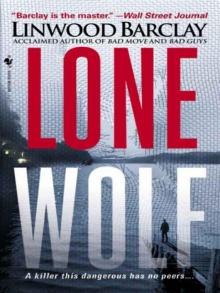 Lone Wolf zw-3
Lone Wolf zw-3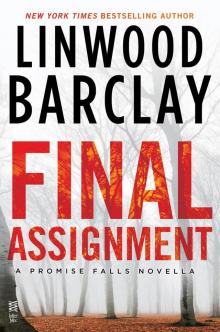 Final Assignment: A Promise Falls Novella
Final Assignment: A Promise Falls Novella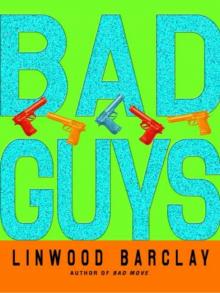 Bad Guys zw-2
Bad Guys zw-2 Never Saw It Coming: (An eSpecial from New American Library)
Never Saw It Coming: (An eSpecial from New American Library) Never Look Away: A Thriller
Never Look Away: A Thriller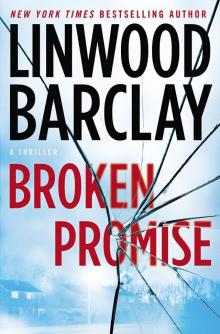 Broken Promise: A Thriller
Broken Promise: A Thriller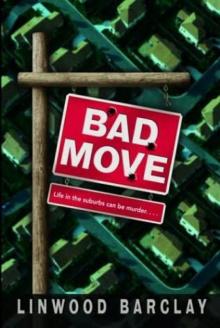 Bad Move zw-1
Bad Move zw-1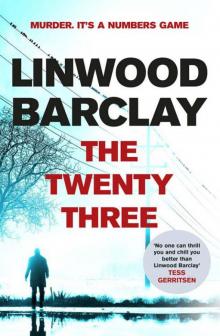 The Twenty-Three 3 (Promise Falls)
The Twenty-Three 3 (Promise Falls)